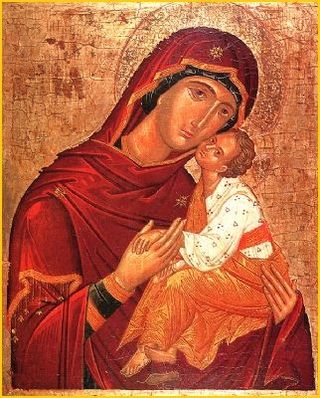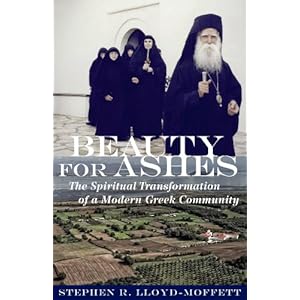It would seem that the apophatic or negative approach to theology would be the end of knowledge, or else a slide into nonsense, nihilism or gnostic subjectivism. The basis of the negative approach after all is the acknowledgment that its subject is that which is by nature inaccessible, beyond comprehension, beyond intellection. This would seem to make it entirely useless as far as the acquisition of objective knowledge. Yet, paradoxically, far from being esoteric or an aberration it is understood to be, and indeed has been, a normative approach by the Eastern Orthodox church from her beginnings. How can this be? How can the apophatic approach then be beneficial to theology, and indeed to the Christian life?
Vladimir Lossky sees this paradox and the implied apophatic attitude as part and parcel of Christian revelation:
"the transcendent God becomes immanent in the world, but in the very immanence of His economy, which leads to the incarnation and death on the cross, He reveals Himself as transcendent, as ontologically independent from all created being."
An apophatic approach then would hardly be optional. God is revealed as beyond our being, beyond being, beyond concept, time, space, thought and understanding. A positive approach (kataphatic theology) then, which affirms God is good, light, just, merciful etc., brings us to a certain point but ultimately falls short. Lossky posits that negative theology offers an "apprehension of supreme ignorance" and a mystical knowledge superior to the intellect, so here we start to see the usefulness of apophaticism:
"The negative way of the knowledge of God is an ascendant undertaking of the mind that progressively eliminates all positive attributes of the object it wishes to attain, in order to culminate finally in a kind of apprehension of supreme ignorance of Him who cannot be an object of knowledge."
So we can speak of knowledge, however it is a knowledge beyond our intellect. But would this not give way to gnosticism as a path to secret, deeper knowledge, or to provide subjectivism fertile ground? Not so if this mystical knowledge is not contrary to the rest of Christian revelation:
Just as iconographic "antinaturalistic" apophaticism is not iconoclasm, so also the antirationalistic negative way is not gnosimachian: it cannot result in the suppression of theological thought without detriment to the essential fact of Christianity: the incarnation of the Word, the central event of revelation, which makes iconography as well as theology possible.
Apophatic theology then is not the end of knowledge but a very necessary method to allows us to go beyond created being, indeed beyond ourselves. And that, to me, seems to be a good thing. Quotes are from Vladimir Lossky's
"In the Image and Likeness of God". A related post with interesting comments in the combox can be found at
Energetic Procession.
 OUR ENTIRE STRUGGLE in this life is aimed at discovering our 'deep heart' because that is the place where God manifests Himself. Above all, we aim to uproot the passion of pride within us, because this is the passion which buries the heart, leaving us feeling as if we no longer had a heart. 'Pride stops us from loving,' says St Silouan. Indeed, true love proceeds from humility, for the humble man has room in his heart for God and his fellow-men. As long as we are proud we will be separated from our heart; we will live only according to our little minds, totally missing the ultimate purpose of our coming into this life, and will end up as dry leaves blown about aimlessly by the wind. If, however, we succeed in finding our deep heart, then our mind will drop anchor not only in the heart, but also in the depths of heaven where our life is 'hid with Christ in God' . And God will come and make His abode in us.
OUR ENTIRE STRUGGLE in this life is aimed at discovering our 'deep heart' because that is the place where God manifests Himself. Above all, we aim to uproot the passion of pride within us, because this is the passion which buries the heart, leaving us feeling as if we no longer had a heart. 'Pride stops us from loving,' says St Silouan. Indeed, true love proceeds from humility, for the humble man has room in his heart for God and his fellow-men. As long as we are proud we will be separated from our heart; we will live only according to our little minds, totally missing the ultimate purpose of our coming into this life, and will end up as dry leaves blown about aimlessly by the wind. If, however, we succeed in finding our deep heart, then our mind will drop anchor not only in the heart, but also in the depths of heaven where our life is 'hid with Christ in God' . And God will come and make His abode in us.






